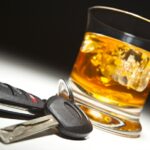The differences between restrictions, suspensions and revocations are important to understand.
A restricted driver’s license limits driving privileges. A suspension is a temporary loss of a driver’s license for a set time period. A permanent loss of driving privileges is a revocation.
The Secretary of State can restrict, suspend or revoke driver’s licenses for multiple reasons. Common grounds include:
- Multiple DUI convictions (also known as a habitual offender). Your driver’s license is revoked for 1 year after 2 DUI convictions within 7 years. Licenses are revoked for five years after three DUI convictions. A person who has a revoked license because of multiple DUI convictions must wait until the revocation period ends before requesting a hearing to restore his license.
- Refusal to take a chemical test after an arrest for DUI (also referred to as implied consent). This results in a 1 year suspension for the first refusal and a two year suspension for a second refusal within 7 years. You can only appeal first refusals to circuit court on a hardship basis in Michigan.
Other common reasons for driver’s license restrictions, suspensions and revocations are:
- Too many points as a result of multiple traffic tickets.
- Probationary driver violations. This may happen when a probationary driver incurs either traffic accidents or traffic tickets.
- Restricted license violations. This occurs when a person drives outside of their restrictions. For example, if someone is restricted to driving only to and from work and the person is caught driving somewhere else, this would constitute a violation.
- Mental/physical disability because a person is unable to drive safely.
- Out-of-state convictions for drunk driving and the like.
- Operating a vehicle with a suspended/revoked license.
- Too many auto accidents.
Significantly, suspensions and revocations are treated differently when it comes to hardship appeals in the circuit court. The hardship appeal allows the petitioner to request a restricted license so that, for example, he or she may drive to and from a place of employment. Suspensions can be appealed on hardship grounds to the circuit court.
Revocations cannot be appealed to the circuit court on a hardship basis. Instead, one must wait for the revocation time period to end and appeal to the Driver’s Assessment and Appeal division of the Secretary of State for a hearing.
There are important distinctions between revocations and suspensions. Get the assistance of a driver’s license restoration attorney in determining your best course of action.

